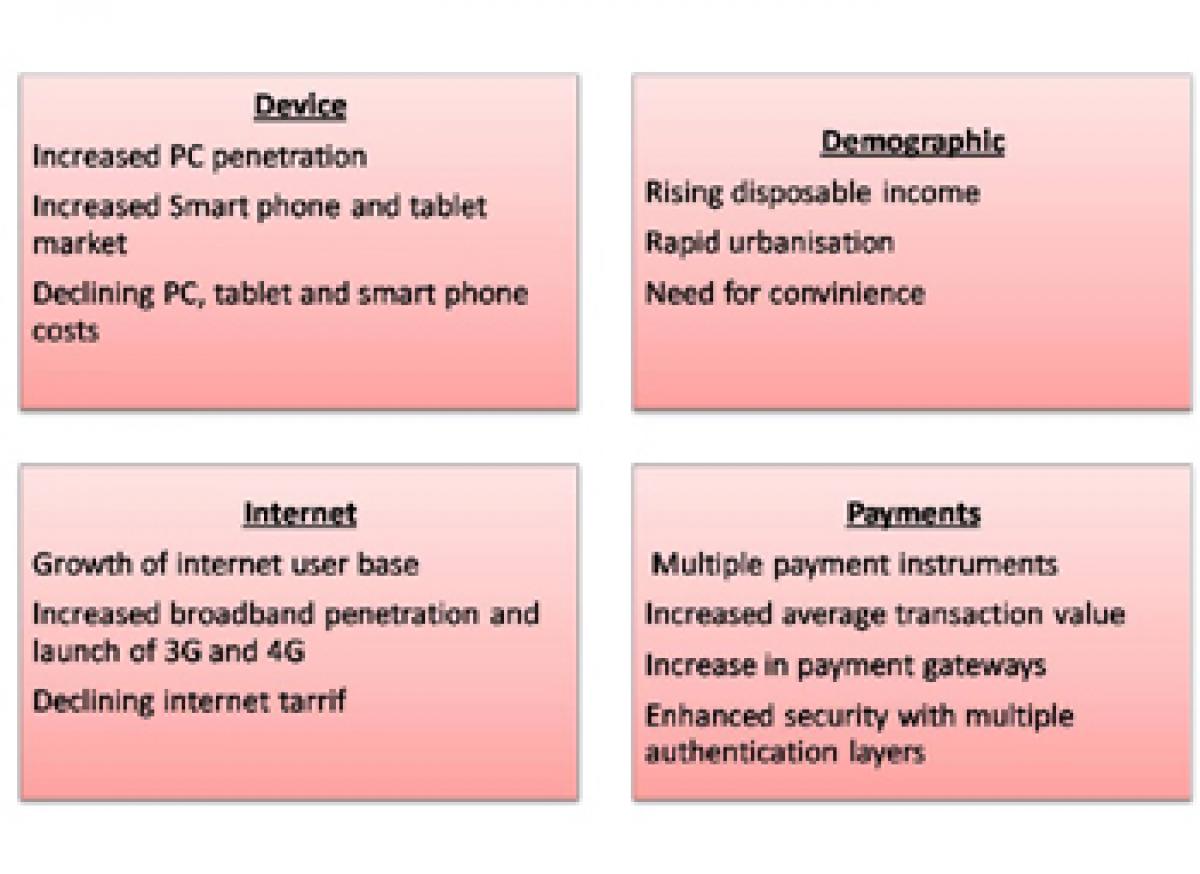Live
- Hyderabad: Eatala, Raghunandan, DK Aruna file nomination papers
- Chandrababu to hold Praja Galam election campaign in Kurnool today
- Rajasthan CM casts his vote, says BJP will repeat history
- Ex-MP CM Kamal Nath, son Nakul Nath cast votes in Chhindwara
- Hyderabad: HC directs police to permit Hanuman Vijaya Yatra rally with 100 bikes on April 23
- LS polls: PM Modi to campaign in UP, MP and Maharashtra today
- ‘Narmada Pushkara Kshetra Darsini’ book released
- Gold rates in Delhi slashes, check the rates on 19 April 2024
- Gold rates in Visakhapatnam slashes, check the rates on 19 April 2024
- Filing of nomination commences
Just In

The government’s latest move to define e-commerce and allow 100 per cent FDI in the market place and placing unnecessary riders will certainly hurt home grown companies, and more so the customers, who have been getting rock bottom prices from these virtual shops.
Around the second week of May 2015 when Binny Bansal and Sachin Bansal, India’s ecommerce poster boys got a letter from Union Commerce Minister Nirmala Sitaraman inviting them to discuss about foreign direct investment (FDI) in e-retailing, they would have had a shock of their life. It was barely a month before she told the Parliament that the government didn’t have any intention to review the policy regarding foreign investment in e-commerce retailing.
The government’s latest move to define e-commerce and allow 100 per cent FDI in the market place and placing unnecessary riders will certainly hurt home grown companies, and more so the customers, who have been getting rock bottom prices from these virtual shops.
Later, the government announced the following-a) 100% FDI under automatic route permitted in the marketplace model of e-commerce; b) Marketplace e-commerce entity may enter into transactions with its registered sellers on B2B basis; c) Marketplace e-commerce entity may provide logistic, warehousing , order fulfillment, call centre, payment collection and other services; d) More than 25% of the total sales should not be done by one vendor or its group companies; e) The name, address and contact details of seller should be clearly mentioned; f) The seller shall be responsible for post sales, warranty and guarantee of goods sold by it; g) Marketplace e-commerce entity should not influence the pricing of goods sold on its platform.
Well most of these riders put in by the government now will force companies to do away with steps to lower prices and help consumers get the best deals. "It is a deeply regretted decision. It is an irony that Prime Minister Narendra Modi time and again advocating empowerment of small businesses whereas on the other hand regular steps are being taken to disarm the traders from their business activities," Confederation of All India Traders (CAIT) said in a statement.
Moreover, discounts have been the lifeline of most of all e-commerce platforms in the crowded market place. After all, I and you go on-line to shop because we get it cheaper there. But these new rules will now clip all the possibility of us getting goods at lower prices.
Why is the government, or specifically mandarins of Udyog Bhavan, bothered about the deep discounts etailers have been doling out till now? The mandarins of the Udyog Bhavan believe they have been acting in the interests of corner retail stores, which provide livelihood to vast swathes of Indians and give us goods on phone calls.
But at least the big boys of India's e-commerce segment have been doing business, oblivious to complete ban on foreign direct investment (FDI) in retail, by devising a unique model called marketplace. As no definition of this model existed in any policy related to retail trade, etail giants set up their businesses with active participation of foreign investors. Why should the government do everything in a clandestine mode, when it comes to bending rules to allow foreign investment?

© 2024 Hyderabad Media House Limited/The Hans India. All rights reserved. Powered by hocalwire.com







